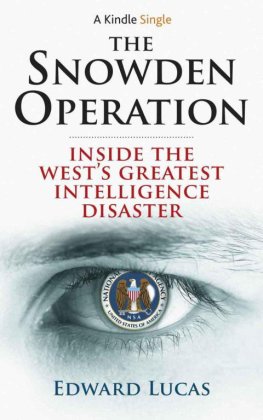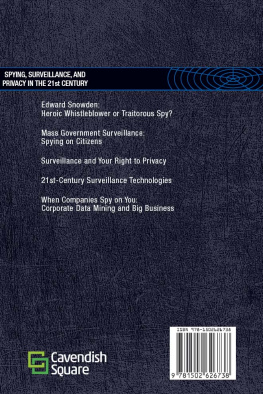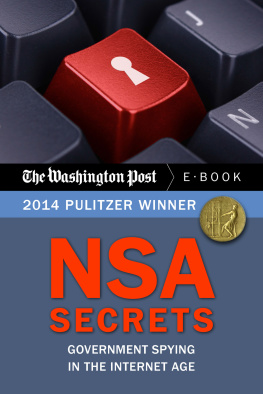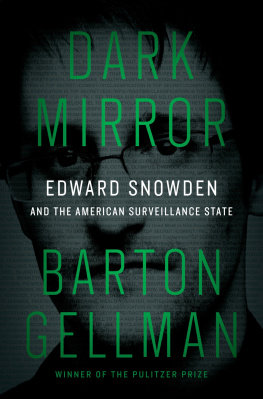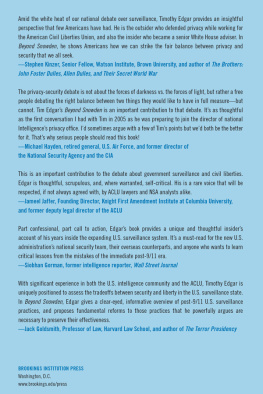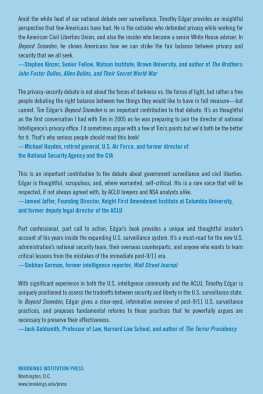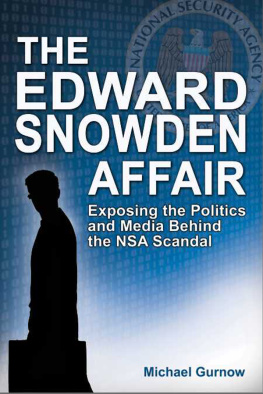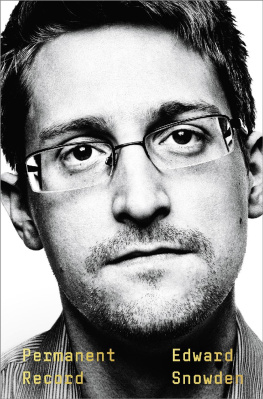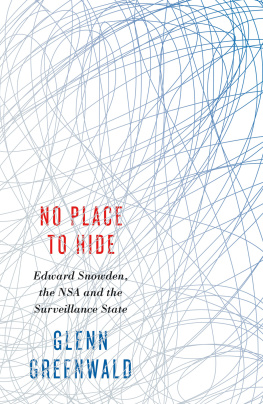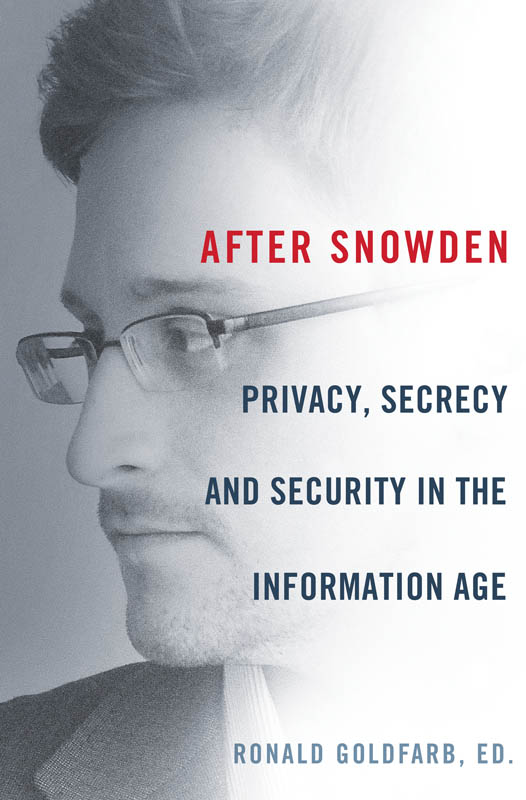Contents
Guide

The author and publisher have provided this e-book to you for your personal use only. You may not make this e-book publicly available in any way. Copyright infringement is against the law. If you believe the copy of this e-book you are reading infringes on the authors copyright, please notify the publisher at: us.macmillanusa.com/piracy.
R ONALD G OLDFARB
R ONALD G OLDFARB is a veteran Washington, D.C., attorney, author of thirteen books, and a literary agent. He worked in the Department of Justice prosecuting organized crime cases during the Kennedy administration, and served as trial counsel in the U.S. Air Force, JAG, for three years before that. He was special counsel to a congressional (House of Representatives) investigation, and was appointed to chair a special review committee established by a D.C. federal court dealing with the practices of the Department of Labor. His Web site, http://www.ronaldgoldfarb.com, lists his biography in full detail.
T HE NOTORIOUS REVELATIONS of Edward Snowden, former U.S. government employee and contractor, who stole and made public a deluge of classified government documents concerning U.S. surveillance practices, have generated passionate reactions worldwide. Most people have strong opinions about whether Snowden is a megalomaniacal traitor or a self-sacrificing patriot, and whether our nations policies should err on the side of protecting national security or civil liberties. Use of the word leak to describe Snowdens disclosures, rather than geyser or waterfall, is as minimalizing of his action as the charge of espionage by the government seems a grandiose exaggeration of his offense.
Mediating the debate over the right judgment of Mr. Snowdens behavior is not the aim of this collection of essays by eminent scholars with expertise in relevant fields affected by the Snowden affair. Whatever the final verdict on Snowden may bewhether he is a public-spirited whistleblower, classic leaker, actor in a proud tradition of civil disobedience, or a vain and reckless vigilante, a treacherous criminal who has hurt his countryhis behavior has raised important questions about our nations dragnet surveillance practices and the proper agencies and manner of its review. These questions are the subject of this book.
What are the proper bounds of secrecy? Are current government surveillance practices justified as necessary measures of national security at a time of extraordinary provocation, or do they go too far, setting a dangerous precedent for our national policies of self-protection that could lead to a security state? And if so, who decides that, and what should be done about it?
A high school dropout and technical wizard, Snowden worked for the CIA, NSA, Defense Intelligence Agency, and recently for a private contractor (first Dell, then Booz Allen Hamilton) commissioned by the NSA, doing what has been described as cyber-counterintelligence. Once an idealistic participant in U.S. national security programs, Snowden became disillusioned by what he perceived as government excesses and abuses in its data gathering. Believing that he had no proper alternatives, Snowden fled from his carefree life in Hawaii, his well-paying job, his girlfriend, and his country, taking along four laptops with encrypted, top secret files. He claims he did so in order to protest what he viewed as major incursions on peoples privacy and constitutional rights. I took an oath to support and defend the Constitution and saw that the Constitution was being violated on a massive scale, he told a Texas teleconference.
The Snowden Files, by The Guardian editor Luke Harding The prize-winning reporter Barton Gellman would later join them in telling Snowdens story at The Washington Post.
For ten intense, perilous, around-the-clock days in Hong Kong, the three met secretly in Snowdens room at the Mira Hotel, joined by The Guardian s expert on national security, Ewen MacAskill, to evaluate Snowdens story before they would eventually tell it to the world. Once satisfied with Snowden as a credible source (after forty-eight hours of speed dating, as MacAskill called it), The Guardian called the White House seeking a quick response before going public with Snowdens material. Getting none, The Guardian broke the story. Snowden hurriedly departed Hong Kong for refuge in South America, but finding his passport canceled by the United States ended up grounded en route at the airport in Russia.
At this time, Snowden, a thirty-one-year-old man without a country, remains in Russia under temporary asylum, recently joined by his girlfriend, regularly interviewed by visiting reporters, and broadcasting his story and viewpoints to audiences worldwide over the Internet. His residence permit recently was extended for three more years, as he negotiates safe harbor in other countries, evading extradition and facing an indictment in the United States for espionage and theft of government property for which he faces thirty years in prison. Reviled for recklessness and praised for self-sacrifice, his actions already have generated the beginnings of reforms.
Through his trusted journalistic confederates, he continues to expose the governments questionable surveillance practices. He certainly has generated a national debate about this subject in the United States, and engaged other countries in an international conversation by raising the publics consciousness about the practices of surveillance in the borderless world of cyberspace. In October 2014, the UNs top counterterrorism and human rights official formally reported to the General Assembly that questionable electronic surveillance by member states unjustifiably violated core privacy rights in violation of multiple treaties and conventions. Reformative bills are pending before the U.S. Congress. Reevaluation of House and Senate oversight practices are underway. Lawsuits have been filed. A high-level White House review panel already has proposed forty-six reform measures.
The Snowden affair raises a classic, fundamental question about how our three branches of government should synchronize their work, yet check and balance each others powers. Is the executive branchs work on national securityarguably no more important role exists as part of its constitutional powersproperly overseen by the Congress and the courts? And how does the press monitor all three branches when national security is the question? Have surveillance technologies outpaced democratic controls, as one of Snowdens attorneys claimed? A recent Foreign Affairs article concluded that Snowdens revelations demonstrated how the implicit bargain that has governed the U.S. intelligence community since the 1970s has broken down. Has it? How so? What to do about it?
This book aspires to inform the debates generated by the Snowden disclosures about critical policies: the role of the press in reporting about national security; the value of leaks and the need for whistleblowers; the proper bounds and treatment of civil disobedience; the roles of courts and Congress in overseeing executive practices taken in the defense of our nation; and the appropriate balance between privacy and government investigation and secrecy in this evolving era of invasive technology and metadata gathering.
How do we protect our nations security without creating, in the words of Cato Institute official Julian Sanchez, a nigh-omniscient, planet-spanning, electronic panopticon?
* * *
In the history of the United Statesit could be said so about most, if not all, placeswhen national security, domestic terror, and personal provocation clash with peoples civil liberties, the former prevail. That is human nature. The Constitution is not a suicide pact, the late Supreme Court Justice Robert Jackson said, capturing the human dilemma of this conundrum. As Professor Jon L. Mills points out in his chapter, The Future of Privacy in the Surveillance Age, the first words of the Constitution pronounce the need for national security. Over a century later judges declared that privacy, not a word that appears in the Constitution, is constitutionally protected by implication from other protections in the Constitution.


